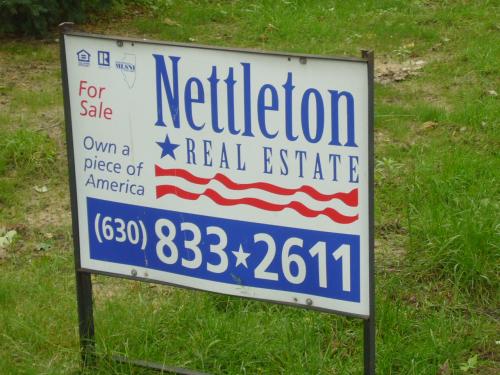
Successful land speculation (also known as “real estate investment”) is really a matter of taking for yourself the gains that belong to the community. George Menninger is one of the many who have done it, but he’s exceptional in his understanding of what he did, as well as his sympathy for his victims. He’ll explain how the bad public policy he exploited not only made him rich, but led to continued poverty, unemployment, and even the recent economic meltdown.
Menninger is a Henry George School volunteer instructor, and this stand-alone session also serves as the introduction to his modern version of Progress & Poverty. After his talk, you may, if you wish, sign up for the five-session course.
Since earliest civilizations, humans have recognized that food is a product of farmland (and, yes, pastureland, fisheries, etc) and have managed to cultivate enough land to feed themselves. Yet today we routinely convert farmland to urban use. American Farmland Trust (AFT) seek to ensure continued agricultural use of some land by buying development rights from farmers, and try to make farms more viable by facilitating community supported agriculture. The geoist fiscal reform provides an alternative way to encourage more conservative and productive use of all land. With additional material from YES! magazine about the slow food revolution, this presentation by HGS instructor Bob Jene suggests that an alliance between AFT and geoists might benefit both.
You are welcome to attend the first session, on Wednesday May 7 6PM, at no charge and without committing to enroll. Instructor Bob Jene will provide an overview of and introduction to the course. At the conclusion you may choose to enroll ($25 fee), or pass up this opportunity (There will be another chance next term, and more thereafter.) More about Progress & Poverty
You are welcome to attend the first session, on Wednesday May 7 6PM, at no charge and without committing to enroll. Instructor Bob Jene will provide an overview of and introduction to the course. At the conclusion you may choose to enroll ($25 fee), or pass up this opportunity (There will be another chance next term, and more thereafter.) More about Progress & Poverty
You are welcome to attend the first session, on Wednesday May 7 6PM, at no charge and without committing to enroll. Instructor Bob Jene will provide an overview of and introduction to the course. At the conclusion you may choose to enroll ($25 fee), or pass up this opportunity (There will be another chance next term, and more thereafter.) More about Progress & Poverty
You are welcome to attend the first session, on Wednesday May 7 6PM, at no charge and without committing to enroll. Instructor Bob Jene will provide an overview of and introduction to the course. At the conclusion you may choose to enroll ($25 fee), or pass up this opportunity (There will be another chance next term, and more thereafter.) More about Progress & Poverty
You are welcome to attend the first session, on Wednesday May 7 6PM, at no charge and without committing to enroll. Instructor Bob Jene will provide an overview of and introduction to the course. At the conclusion you may choose to enroll ($25 fee), or pass up this opportunity (There will be another chance next term, and more thereafter.) More about Progress & Poverty
You are welcome to attend the first session, on Wednesday May 7 6PM, at no charge and without committing to enroll. Instructor Bob Jene will provide an overview of and introduction to the course. At the conclusion you may choose to enroll ($25 fee), or pass up this opportunity (There will be another chance next term, and more thereafter.) More about Progress & Poverty
Bob Jene will examine the American Monetary Institute’s American Monetary Act, a proposed amendment to the Constitution, and compare it with Henry George’s ideas on money. Steve Zarlenga’s speech in which he shows George’s ideas on money coincide with AMI’s will also be examined and discussed. It will boil down to which is more important, Henry George’s proposed fiscal reform or Zarlenga’s monetary reform.
An evening with Bob Jene to compare the Georgist fiscal reform to the TARP bailout, “Fair Tax,” Flat Tax, Bush tax cuts and government money creation. A gist of each proposed or attempted solution to the “great recession” will be given including QE I, QE II and QE III. Attendees will rank the proposed remedies on a scale of 1 to 10 based on 8 criteria.
